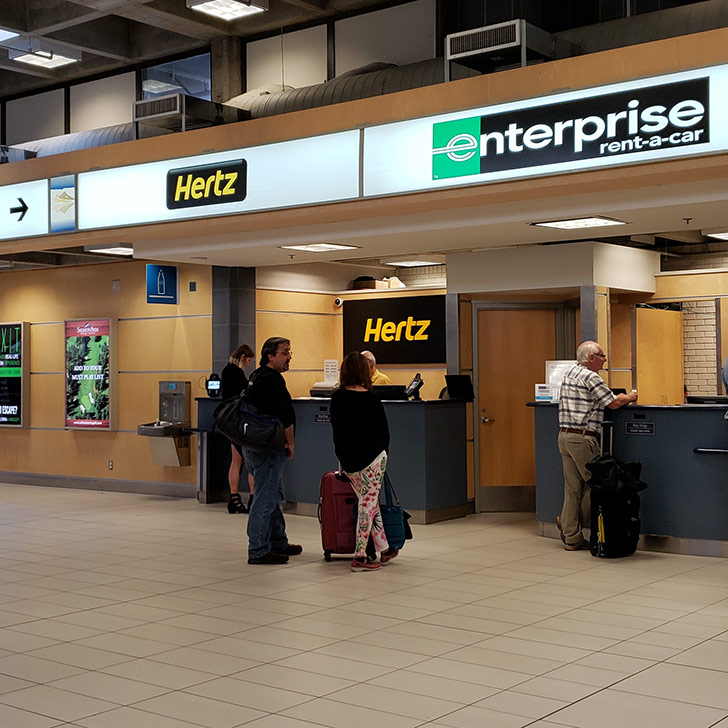One-Way Intercity Car Rental Solution to Car Rental Shortage

The COVID-19 pandemic has largely thwarted travel plans for the past year, but now that restrictions have eased, a car rental shortage is posing a significant problem for those who are ready to get back on the road.
Driving a car is generally more economical than taking a flight or boarding a bus for those who plan intercity travel, but the pandemic has had a range of repercussions on the car rental ecosystem, including a major semiconductor and car rental shortage. With fleets diminished, and prices skyrocketing, the auto industry is struggling to meet demand, and travellers are left wondering what the future holds.
Reece Griffin, Founder of MirrorTrip was recently interviewed by the Voice of B2B Daniel Litwin with MarketScale to discuss the implications of the car rental shortage across the mobility ecosystem and how car rental companies, as well as OEMs (original equipment manufacturers), should strategize around some of the coming innovations to car-sharing.
During the pandemic, semiconductor fabrication companies experienced shutdowns and slowdowns in manufacturing. Semiconductor chips are used in most electronic devices and provide a variety of functions, one of which is to power our vehicles. But with entire nations ordered to stay home and nearly all travel suspended, semiconductor chip manufacturers were forced to slow production rates, resulting in a major car rental shortage.
And it wasn't just semiconductor fabs that felt the pandemic's financial crunch. "At the beginning of the pandemic all these companies slashed their inventory in order to stay afloat," said Griffin. "Hertz, Avis, Enterprise—they were selling off cars at the beginning of this and now they are clamouring to get their stocks back again and of course the shortage is now in play."
So with supply chain issues and the semiconductor shortage creating a domino effect throughout the automotive industry, how can innovations in car rentals rise to the challenges brought about by the car rental shortage and increasing demand?
Griffin points out that a common issue for car rental companies is when too many cars pile up in a particular city. For example, if there's a surplus of travellers renting cars for a road trip from Vancouver to Seattle, but nobody is bringing those cars back, they'll eventually need to be licensed out of state.
"So the long shot is they either have to steeply discount the price to get the car back to where it was or even more drastically sometimes hire a transport or towing company to bring the vehicle back, which is a significant expense and they typically pass that expense onto the consumer," Griffin explained.
MirrorTrip solves this issue with an alternative approach to peer-to-peer car-sharing that redefines what the car rental process looks like. "It gets you from one city to another, but you don't share the car at the same time as someone else," Griffin said. "You share the round trip. So basically our platform matches people travelling in opposite directions. You plug in your dates, where you wish to travel, and we match you with people who are travelling in the opposite direction but whose pick up date is adjacent to your drop-off date."
With the car rental shortage in play, prices have steadily increased for travelers planning for a road trip this summer, and traditional travel websites and car rental agencies often charge extra for one-way car rental trips. But by matching people to complete round trips, MirrorTrip eliminates the problem of rental companies having to juggle fleet asymmetries, which cuts costs and makes intercity rentals more price competitive with traditional means of travel.
As for what the future holds, there are many trends pushing OEMs in different directions today, especially with the track record of companies like BMW, Audi, and GM investing in the car rental industry. So what strategies should OEMs take on car-sharing or car-rental services to differentiate themselves from the competition, and what is going to be the most beneficial for them?
Many are expanding their reach and looking to win the race for both EVs (electric vehicles) and autonomous cars. And while we're still far from a world filled with fully autonomous vehicles, and EV's cost more to buy than their fuel-powered counterparts, the future looks bright. Autonomous vehicle stocks have been red hot, and with auto and tech companies pouring billions of dollars into the race to gain market share, it doesn't look like this trend will fizzle out anytime soon.
Regarding the future of car rentals, Griffin had a few insights. "Car-sharing platforms really only serve the middle class at the moment, and I don't really think they're a democratized transport," he said. "I think autonomous vehicles could really come into play in terms of reducing the complexity of insurance on these fleets as well as improving access to this type of thing. You don't need a driver's license ultimately and you're able to pay by the hour. You just sort of step in and press a button. I think this could really democratize car-sharing itself and fill a lot of gaps in the industry."
But unfortunately, the future we were promised of self-driving cars, while in the works, has yet to arrive. Until then, travellers hoping to rent a car this summer should book early and search beyond traditional means of transportation. The car rental shortage isn't expected to ease up anytime soon, but with cheap car rental alternatives like MirrorTrip's ride-switching solutions, you can avoid one-way car rental fees and finally take that long-awaited road trip."













Comments
There are no comments yet, you can be the first!